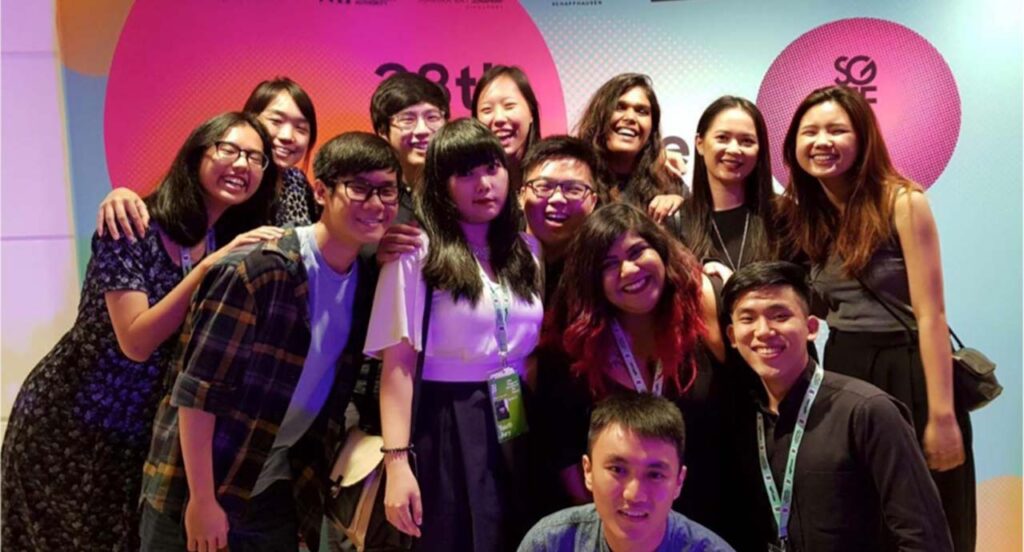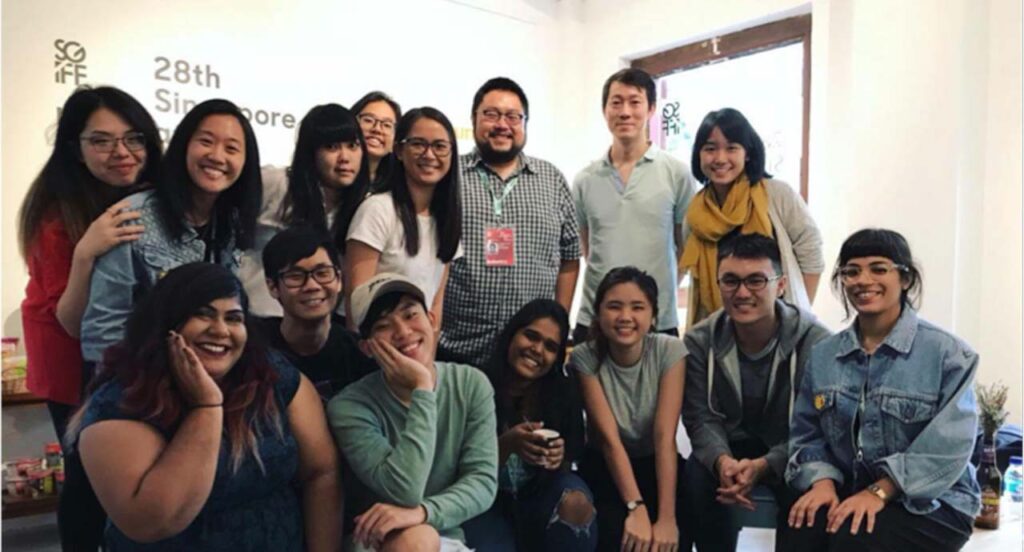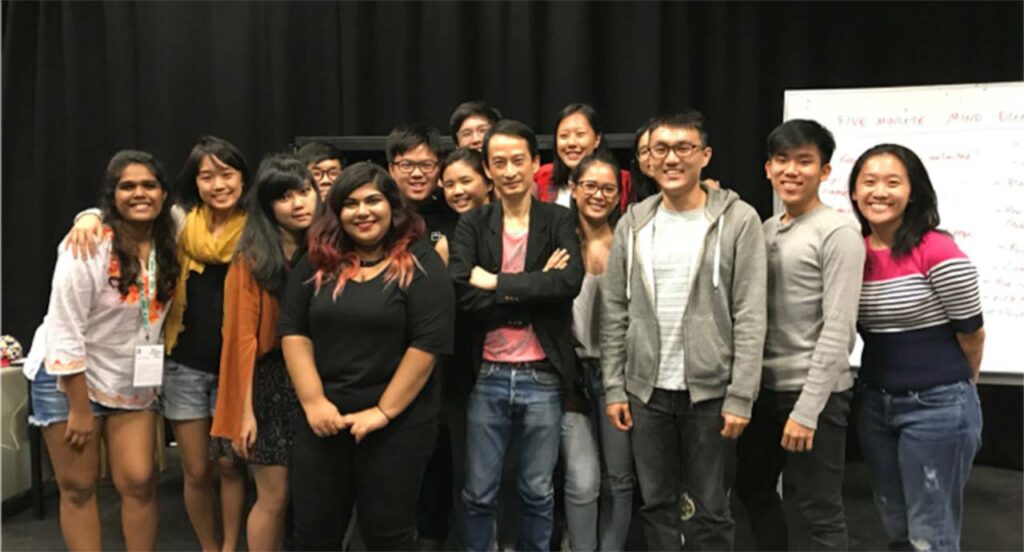
I first heard of the Youth Jury and Critics Programme only because my school, NTU’s Wee Kim Wee School of Communication and Information, was in partnership with the festival in organising this as part of SGIFF’s educational efforts. Unlike prestigious critics program in Rotterdam where only the most established journalists are chosen, the Youth Jury and Critics Programme takes in post secondary and tertiary students. In a 5-week intensive education program, we play jury and select the best Southeast Asian Short film that we deem deserves the award. Imagine this – and I am going to be blatantly honest – the festival gives a bunch of youths the autonomy to provide an award to a filmmaker, out of 15 films carefully curated by programmers. Given our lack of experience in film criticism, among other things, I wondered if we really are that qualified? 5 weeks to develop the ability to critically analyse films and write about them for the publication is impossible. Or that’s what I thought.
The thirteen of us this year came from different backgrounds – music, anthropology, philosophy, theatre, literature and of course, film. Our understanding, emotional and critical reception to the short films were based on our own inclination of the world that we live in. However, as a jury, the festival organisers set a criteria for us to judge for the winning film.
“The prize was to be awarded to a film that provided a novel perspective of Southeast Asia while pushing the thematic, cultural and technical boundaries of filmmaking. Furthermore, it had to contain a fully developed concept within its genre, which engaged the audiences’ emotions, portraying a clear vision of the director.”

The mentors we met through the program provided us a framework to develop our ability for film criticism. We were mentored by renowned filmmaker and critic, Kevin B. Lee who opened our eyes to the world of video essays for film criticism. We had a session with Anderson Le, the Programmer of the Hawaii International Film Festival and a philosophical session with French-Vietnamese auteur, Tran Anh Hung, whose film, Cyclo, won the Golden Lion at the Venice International Film Festival. As we challenged one another on our perspective of the films in all three programs, we also grew together.

That made our decision process remarkably lucid. Yes of course, arguments were made, and we ended up watching our top few picks over again as a team before returning to our discussion process. We watched the short films many times as it was not easy consensus. However, for the first time, I actually felt that film criticism was tangible in Singapore and the people in the room had the passion, and ability to rationalise and articulate which film should win. It was a heated debate between Sorayos Prapapan’s Death of the Sound Man and Carlo Fransisco Manatad’s Jodilerks Dela Cruz, Employee of the Month. In the end, the tribe voted for Death of the Sound Man.
During the Silver Screen Awards, Sorayos Prapapan was also awarded the Best Director Award and Carlo Fransisco Manatad was awarded the best film for Jodilerks Dela Cruz, Employee of the Month. At that moment, I felt that as the youth jury, we were not off tangent in our decision. A group of youths from as young as 17, to as ‘old’ as 25 years had the foresight as the festival jury members for the competition. As the 25 year old of the lot, it felt like a beautiful coming of age moment for the entire group.
The films curated for the Short Film programs captured the essence of our Southeast Asian society, and some really challenged my perception of filmmaking. Mon Tesprateep’s Song X is a great contender. Breaking down the film from different viewpoints of the youth jury members was enriching. For the longest time, I thought that film criticism was almost non-existent in Singapore and having a paradigm shift was remarkable.
The Youth Jury and Critics Programme wasn’t easy. At times, it was draining – playing jury and developing our own film criticism techniques for the festival’s publication requires two separate skills. It worked in the end and it was rewarding. I am glad that as I am about to complete my undergraduate studies, I took this invaluable opportunity to further develop my skills in the area of film. In fact, it personally helped me for my current thesis film that I am working on – and I am thankful to the program for that. The filmmakers that I met throughout the festival gave me vital advice for my work in the area of directing. The access given through this program has it’s perks. You also get to watch tons of films. If you have been on the fence on joining this program, just do it. I was on the fence for two years and I am glad that I finally did it. I gave myself excuses year after year – I was always busy. Now, I met a group of young critics whom I can spend watching films with and writing about them.
Join next’s year’s Youth Jury and Critics Program. I wasn’t paid to say this.

